Webcast sponsored by the Irving K. Barber Learning Centre. How can education go beyond the classroom to reach the lives of the public? In the first event of the 2017 PhDs Go Public Research Talk Series, seven PhD students from UBC’s Public Scholars Initiative have seven minutes to talk about their education research, and how it can make a positive contribution in and out of the university.
This event happened on 26 January 2017.
Panel Speakers
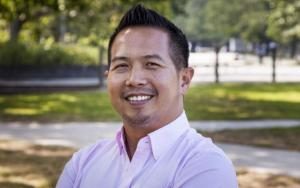 Ron Darvin (Teaching English as a Second Language) examines how high school students of different class backgrounds in Vancouver develop diverse digital practices. His goal is to contribute to educational policies that enable equitable digital instruction for the new BC curriculum. Ron collaborates with the Vancouver School Board and is affiliated with the UBC Digital Literacy Centre.
Ron Darvin (Teaching English as a Second Language) examines how high school students of different class backgrounds in Vancouver develop diverse digital practices. His goal is to contribute to educational policies that enable equitable digital instruction for the new BC curriculum. Ron collaborates with the Vancouver School Board and is affiliated with the UBC Digital Literacy Centre.
Sereana Naepi (Educational Studies) f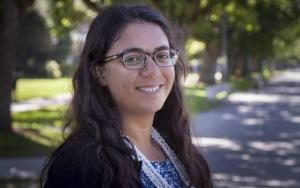 ocuses on systematic ways to address inequality in higher education. Focusing on Indigenous women’s experiences as staff Sereana hopes to reveal the ways in which universities block change that can benefit Indigenous communities, so that universities can change their practices and deliver on their promises to Indigenous communities.
ocuses on systematic ways to address inequality in higher education. Focusing on Indigenous women’s experiences as staff Sereana hopes to reveal the ways in which universities block change that can benefit Indigenous communities, so that universities can change their practices and deliver on their promises to Indigenous communities.
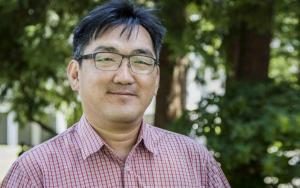 Tak Ishikawa (Experimental Medicine) uses decision science to develop solutions to social issues, particularly in public health. Using decision theories as instruments, Tak develops a public education campaign on road safety, with particular attention to common misconceptions on the use of seat belts and booster seats.
Tak Ishikawa (Experimental Medicine) uses decision science to develop solutions to social issues, particularly in public health. Using decision theories as instruments, Tak develops a public education campaign on road safety, with particular attention to common misconceptions on the use of seat belts and booster seats.
Miranda Meents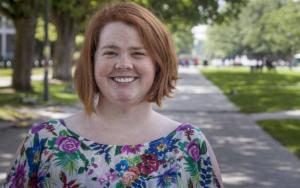 (Botany) bridges the study of how cells work, with how to teach undergraduate students how cells work. Miranda is working to improve the student learning experience, by applying the findings of educational research to real-world biology classrooms.
(Botany) bridges the study of how cells work, with how to teach undergraduate students how cells work. Miranda is working to improve the student learning experience, by applying the findings of educational research to real-world biology classrooms.
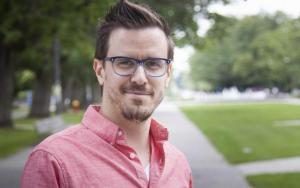 Francois Lachapelle (Sociology) uses social network analysis to show the development and stabilization of specific networks of PhDs exchange between domestic and foreign universities over the last 40 years. Such work will allow the critical assessment of the various forms of internationalization displayed by Canadian universities.
Francois Lachapelle (Sociology) uses social network analysis to show the development and stabilization of specific networks of PhDs exchange between domestic and foreign universities over the last 40 years. Such work will allow the critical assessment of the various forms of internationalization displayed by Canadian universities.
Melissa Guzman (Zoology)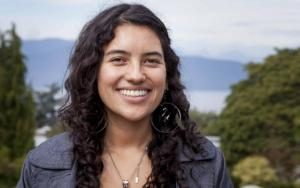 believes that undergraduate students in biology need to be prepared for their future. One skill set many of them are missing is basic level programming. Melissa’s research is focused on re-designing and testing statistics courses to incorporate a programming language using innovative instructional practices. She hopes to change how biostatistics is taught.
believes that undergraduate students in biology need to be prepared for their future. One skill set many of them are missing is basic level programming. Melissa’s research is focused on re-designing and testing statistics courses to incorporate a programming language using innovative instructional practices. She hopes to change how biostatistics is taught.
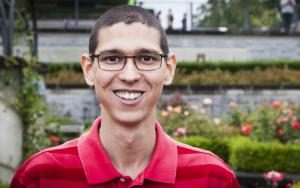 Hassan Halawa (Electrical & Computer Engineering) is aware that cyber-criminals are using evermore sophisticated and largely automated attacks. Inspired by lessons learned from public health, Hassan’s research puts forward the idea of identifying vulnerable user populations and, based on this information, creating an additional layer of defense that will help limit the spread, and cost, of cyber-attacks. His work will help educate vulnerable user populations against automated attacks.
Hassan Halawa (Electrical & Computer Engineering) is aware that cyber-criminals are using evermore sophisticated and largely automated attacks. Inspired by lessons learned from public health, Hassan’s research puts forward the idea of identifying vulnerable user populations and, based on this information, creating an additional layer of defense that will help limit the spread, and cost, of cyber-attacks. His work will help educate vulnerable user populations against automated attacks.
Select Books and Articles Available at UBC Library
Johnson, L. (2007). Multicultural education policies in canada and the united states UBC Press. [Link]
Lahache, L., Castellano, M. B., & Davis, L. (05/14/2014). Aboriginal education : Fulfilling the promise UBC Press. [Link]
UBC Library Research Guides